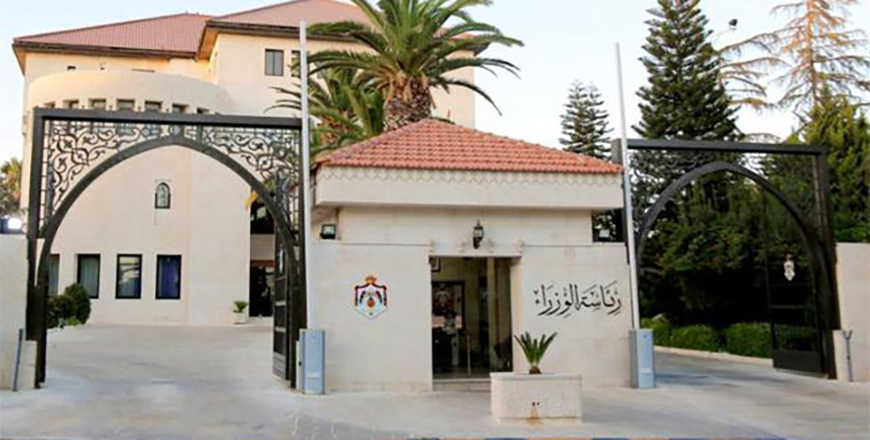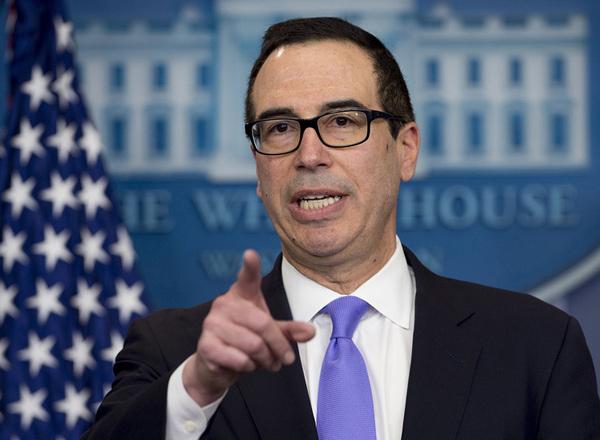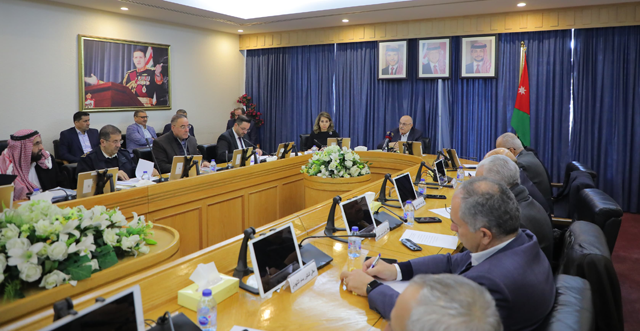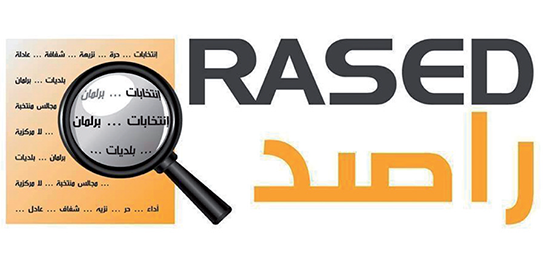You are here
Gov’t paid JD12.061 billion since PM Khasawneh assumed office
By JT - Apr 04,2023 - Last updated at Apr 04,2023

A view of the Prime Ministry building (Petra file photo)
AMMAN — During the incumbency of Prime Minister Bisher Khasawneh, the government paid JD12.061 billion, within 27 months of assuming its constitutional duties.
Khasawneh's government was, according to figures obtained by the Jordan News Agency, Petra, from the Ministry of Finance, ranked second among the last four governments in decreasing net loans, as the volume of loans of Hani Al Mulki's government in 20 months amounted to JD2.084 billion, followed by the Khasawneh government with net borrowing amounting to JD4.2 billion.
The volume of net borrowing of Omar Razzaz’ government during the 27 months of his incumbency amounted to about JD4.535 billion, while the government of Abdullah Ensour recorded the highest volume of net borrowing which reached about JD7.1 billion during his 43-month tenure.
Ensour’s government paid JD17.2 billion during its assumption of its duties, followed by Khasawneh’s government with JD12.061 billion.
Razzaz’ government paid JD10.9 billion and Mulki’s government paid JD10.1 billion.
During the last decade, Jordan has suffered from economic challenges due to regional crises, starting with the repercussions of “the Arab Spring”, government reforms at the time, Syrian refugee crisis, closure of border crossings with Syria and Iraq, fight against terrorism and extremist ideology, the Coronavirus pandemic, rise in global food prices, maritime transport crises, Russian-Ukrainian war, and global inflation, which all affected the course of economic development in the country.
As a result, successive governments resorted to borrowing to meet the requirements of sustainability and confront these crises.
Although Jordan was affected by the developments of major events globally, Khasawneh's government had the greatest contributions in confronting them, as it expedited, under Royal directives, carrying out political, economic and administrative reforms.
Despite all the aforementioned challenges, the national economy is expected to achieve a growth of 2.7 per cent for 2022 and 2023, compared with 2.4 per cent for 2021.
Jordan is one of the few countries that international institutions expect to maintain the improvement of its economic performance.
The government was able to reduce the budget deficit from about 5.6 per cent in 2020 to about 4.4 per cent in 2021.
The budget deficit continued to decline in 2022 to 3.7 per cent, and will reach, according to the estimates of the 2023 draft budget, 2.9 per cent.
This means that the current government has succeeded in reducing the deficit by about 48 per cent within three years, despite the complex economic challenges.
The government has also refrained from raising any tax or imposing any new tax or fee.
The government was also able to reduce the total general debt-GDP ratio, at the end of 2022 to 88.5 per cent, bringing the government debt balance to a value of JD30.667 billion, compared with JD28.763 billion, or 88.6 per cent at the end of 2021, declining to about 88.2 per cent in 2023.
The data indicated an increase in the percentage of domestic revenues’ coverage of current expenditures to 87.5 per cent in 2022 compared with about 84 per cent in 2021 and rising to about 89.1 per cent in 2023.
Statistics show that the percentage of domestic revenues’ coverage of current expenditures will continue its gradual rise to about 91.8 per cent in 2025.
Related Articles
WASHINGTON — America's budget deficit rose to nearly $1 trillion in the 2019 fiscal year as government borrowing swelled, the US Treasury sa
AMMAN — The Senate's Financial and Economic Committee began on Sunday examining the 2024 draft state budget law, which the Lower House passe
AMMAN — The results of Al Hayat Centre (RASED) report on the performance of Bisher Khasawneh's government after three and a half years of it















